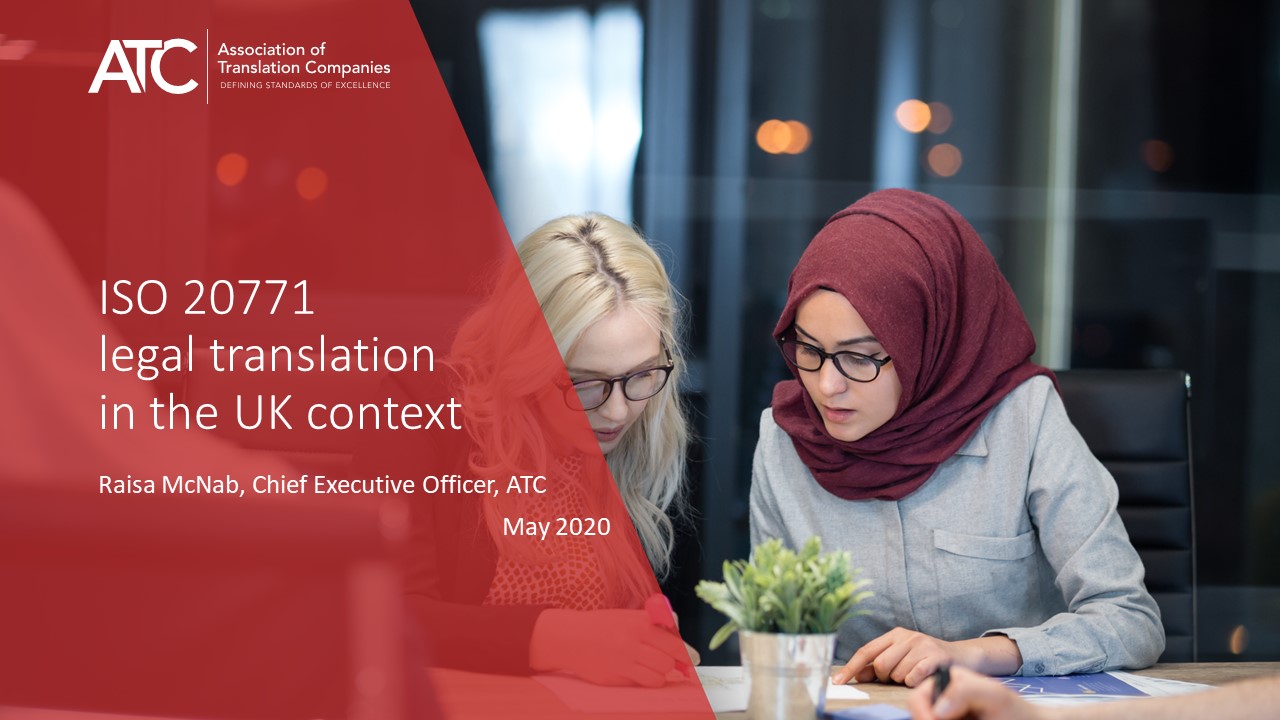The ATC’s Language Industry Awards celebrate the operational excellence of language service companies of all…
ATC webinar: ISO 20771 legal translation
ATC webinar on ISO 20771 on legal translation explores the background, requirements and application of this newly published standard in the UK context.
Watch the webinar here.
Background and requirements
ISO 20771:2020 Legal translation is an international standard setting out requirements for the competences and qualifications of legal translators, revisers and reviewers, best translation practices and the translation process directly affecting the quality and delivery of legal translation services.
The standard specifies the core processes, resources, confidentiality, professional development requirements, training and other aspects of the legal translation service provided by individual translators.
Application and the UK context
ISO 20771 is intended to be applied by individual legal translators, and as such cannot be directly compared to ISO 17100 on translation services for translation service providers.
Rather, fulfilment of the requirements set out in ISO 20771 on legal translation is intended to enable an individual legal translator to demonstrate conformity of their legal translation services to the standard and their capability to maintain a level of quality in legal translation services that will meet specifications.
It’s too soon to judge whether, in the UK, a significant number of individual legal translators would indeed be looking to gain certification to ISO 20771 or self-certify to it, or whether it will in the future serve as best practice guidance for the delivery of legal translation services.
As of yet, there are no certification bodies offering formal certification to the standard, but the ATC’s ISO Certification Service is the obvious certification body to take this standard under its service provision if momentum grows.
ISO 20771 has been adopted as a British standard, and compared to many other countries where legal systems operate very differently, there is scope for the standard to demonstrate its usefulness, even if it’s unlikely that British authorities would require compliance to the standard within all legal contexts.
As one potential tangible benefit in the UK context, where no official “state authorised” or “sworn” translator system exists, compliance to the qualification requirements of ISO 20771 may be used as a way for individual legal translators to demonstrate their qualifications against this international standard.




